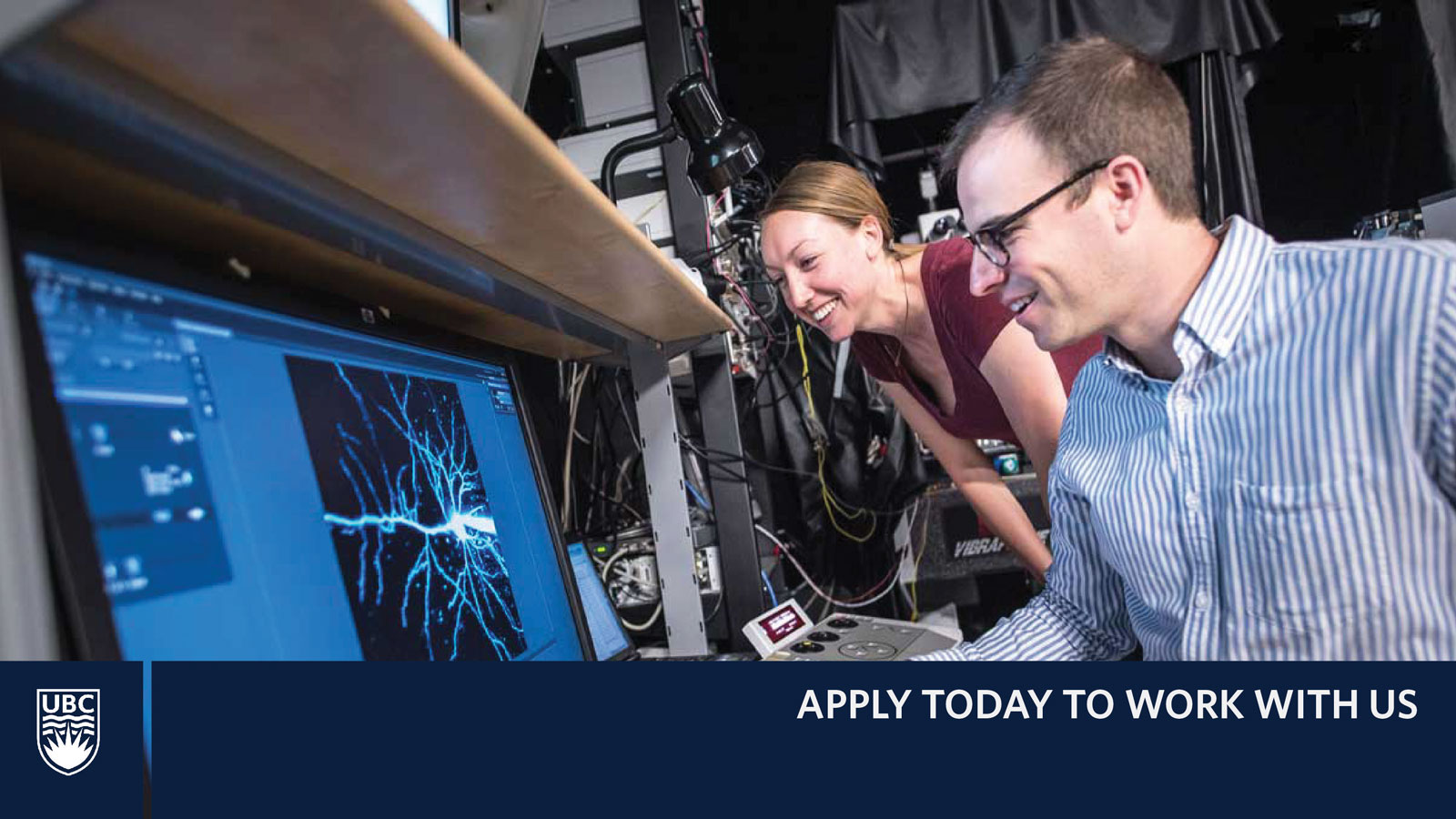Postdoctoral Fellowship: Developmental and Aging Immunology and T-cell Engineering
Postdoctoral Fellowship: Developmental and Aging Immunology and T-cell Engineering
At UBC, we believe that attracting and sustaining a diverse workforce is key to the successful pursuit of excellence in research, innovation, and learning for all faculty, staff and students. Our commitment to employment equity helps achieve inclusion and fairness, brings rich diversity to UBC as a workplace, and creates the necessary conditions for a rewarding career.
Postdoctoral Fellowship: Developmental and Aging Immunology and T-cell Engineering
At UBC, we believe that attracting and sustaining a diverse workforce is key to the successful pursuit of excellence in research, innovation, and learning for all faculty, staff and students. Our commitment to employment equity helps achieve inclusion and fairness, brings rich diversity to UBC as a workplace, and creates the necessary conditions for a rewarding career.














